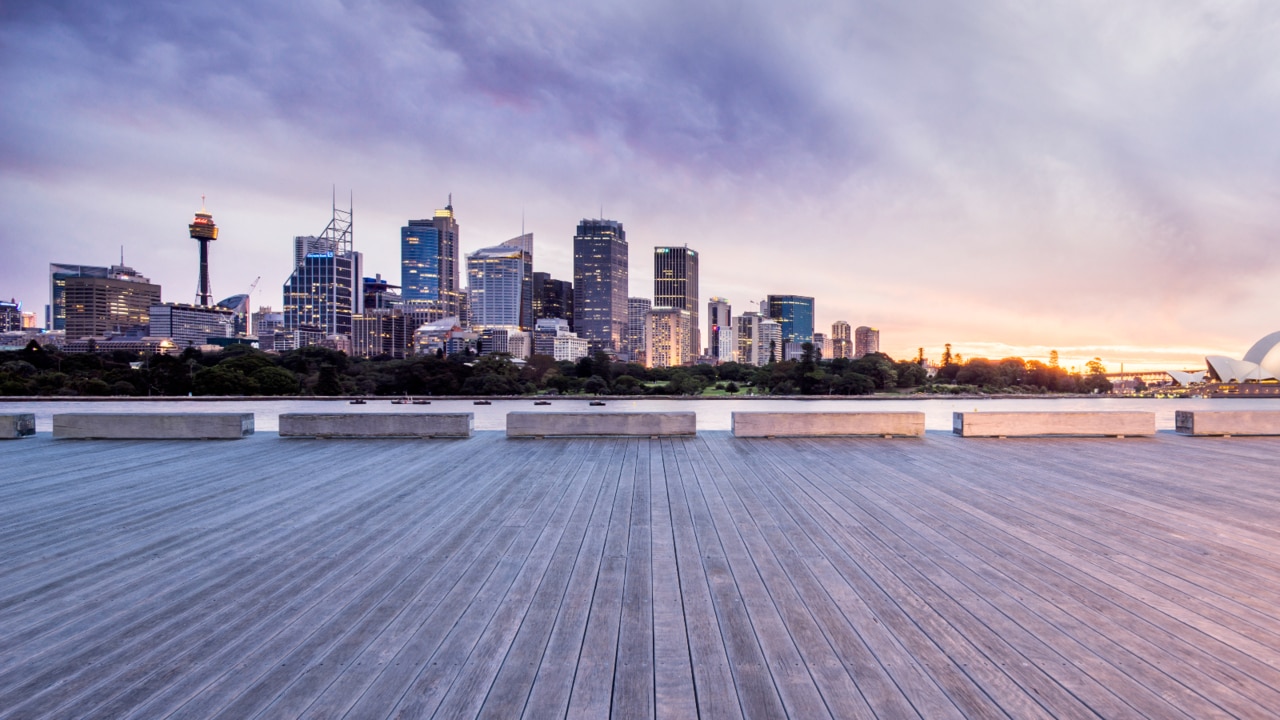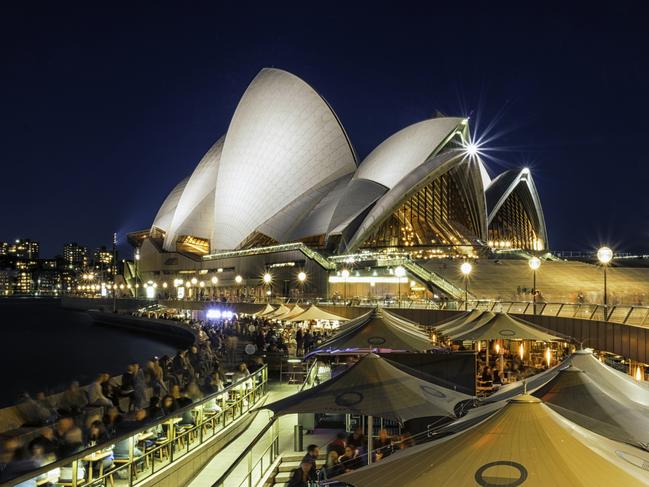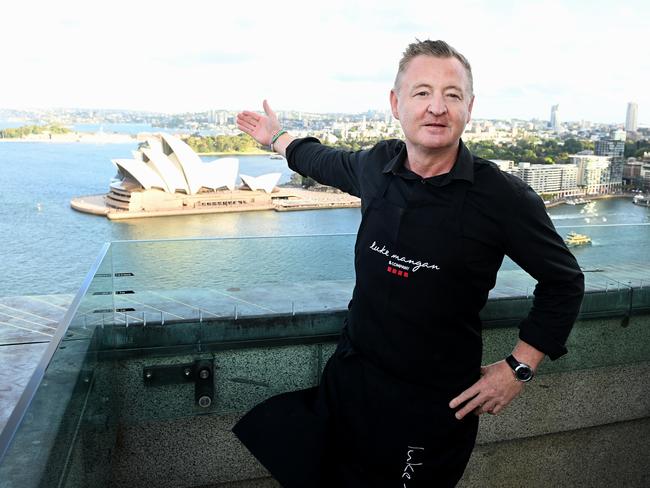‘It’s sad’: Sydney pubs closing at 10pm on Sunday amid growing calls to revitalise CBD night-life
Sydneysiders have been urged to put aside cost-of-living pressures and “hop on a train” into the CBD to help revive the city’s decimated night-life.

Sydneysiders have been urged to “hop on a train” and get back into the CBD, amid growing efforts to revive a city whose night-life has been decimated by lockout laws, Covid lockdowns, working from home and soaring inflation.
Longer trading hours, reduced noise restrictions and loosened liquor laws could be introduced after City of Sydney Council voted on Monday to investigate establishing special entertainment precincts through the CBD.
The proposal was welcomed by Business NSW executive director David Harding and high-profile restaurateur Luke Mangan, who told The Daily Telegraph it was an “innovative approach that could achieve meaningful change”.
Lord Mayor Clover Moore supported the motion but lauded the work council had already done on planned late-night management areas.
Speaking on 2GB radio on Tuesday, host Mark Levy issued an urgent plea for Sydneysiders to do their part, saying the city was “starting to claw its way but but we’ve still got a long, long way to go”.
“When was the last time you ventured into the Sydney CBD?” he asked.

“The lockout laws crippled night-life a number of years ago, the pandemic also tore a hole through the heart of the thriving streets of Sydney, and business owners have been crying out for the local and state governments to entice people back into town.”
Levy recounted having friends from the United States fly into Sydney earlier this year to stay in Circular Quay.
“We met down at The Rocks for dinner one Sunday night in February,” he said.
“The Sydney Opera House was in the background, it was beautiful. I maintain that we live in the best city in the world when you look around and take in all of those wonderful sights. However when we paid the bill and went for a walk up the street to find somewhere to have a drink at around 10 o’clock, most of the bars and pubs were closing — 10 o’clock on a Sunday night and the city virtually shutting down. It didn’t take long to work out why — we were the only people on the street looking for a watering hole to visit after dinner.”
Levy said “even the security guards at one of the pubs laughed” when the group asked if they were closing soon.
“It’s actually quite sad when you think back to the cruise ships that would arrive,” he said.
“The Rocks was the place to meet new people and tourists enjoying the sights of Sydney for the first time. Now they’re forced to walk the streets looking for something that’s open. It’s much the same during the week given most people are still working from home.”

He noted Sydney CBD foot traffic was at around 64 per cent of pre-pandemic levels and weekday train trips were down roughly 25 per cent, adding that while weekend foot traffic was “almost back to normal”, Monday to Friday was a “major problem”.
“Local businesses are losing customers, it has a domino effect,” he said.
“We’ve just had the Vivid Festival which was a roaring success. It’s given the people of Sydney a taste of what they’ve been missing out on — and let’s strike while the iron’s hot. It’s time to start ignoring the people complaining about noise when they’re living next to a pub that’s been there for decades. The same goes for people who live near a stadium and are pushing back against concerts from being held there. It’s time to start supporting the pubs, clubs and bars instead of making it impossible for them to run a successful business.”
Levy said it was “time for the people of Sydney to hop on a train, a bus or a tram and get back into the CBD to enjoy themselves”.
“Admittedly the cost-of-living pressures are making it hard for everyone, I know that,” he said. “However there’s no need to work from home anymore, and why wouldn’t you want to hang around after work for dinner and a couple of drinks?”
Earlier this month, the head of Australia’s largest casino group said CBDs were facing a crisis, as he called for workers to return to the office.

Crown Resorts chief executive Ciarán Carruthers said workers should get out of their homes to boost consumer and business confidence and revitalise CBDs.
“We are still behind where we were pre-pandemic and part of that is the CBD hasn’t returned to full vibrancy as yet,” Mr Carruthers told The Australian.
“Work from home has certainly given us a challenge. From Thursday afternoon through to Tuesday the city’s significantly quieter and I think that’s also having an impact on both domestic and international tourism. The city is just not as vibrant as many of our tourists have expected.”
His plea came as Australian Bureau of Statistics figures revealed the economy slowed to just 0.2 per cent in the March quarter, coinciding with the Reserve Bank’s decision to hike the official cash rate to an 11-year high of 4.1 per cent.
Last month, the chief executive of CR Commercial Property Group blasted those working from home as “selfish”.
“This generation is just selfish,” Nicole Duncan told 2GB host Ben Fordham, describing herself as someone “passionate about people returning to work”.
“In our younger days we caught trains, buses, ferries to get to work. Yes it did take two or three hours, but you’ve got to be in the office. You don’t know what you don’t know, and until CEOs make a decision … it’s not going to change.”

She continued, “Hotels are suffering … there’s less business travel, they do it all on [Microsoft] Teams … cleaners, people who make your coffee, lunches, all of those sorts of things. We want a vibrant city for visitors to come to, and it needs to look busy, it needs to look vibrant, it doesn’t need to look as slow and rambling.”
Tech executive Matt Barrie, founder of Freelancer, recently outlined the slow decline of Sydney as an international destination in a speech entitled “The Great Australian Scream”.
Mr Barrie, delivering the keynote at the SMH Sydney 2050 Summit last month, noted how Sydney was named the world’s best city for festivals and events seven years in a row in various rankings including TripAdvisor, City Brands Index and the International Festivals Association.
“Boy did we stuff it up,” he said.
“Last year, Sydney was ranked the third worst in the world for making friends by Time Out, the second worst night-life in the Global Liveability Rankings, the sixth worst airport for cancellations and ninth for delay and the second least affordable city in the world.”
Mr Barrie pointed the finger at overbearing “nanny state” laws, saying Sydney was “the only city in the world where it’s normalised to be at a pub and have a parade of police with sniffer dogs march in”.
Sky-high rents and wages, governed by a “baffling” array of industry awards, were the reason “you can’t get a meal in Sydney after 9pm anymore”.
“The ‘penalty’ rates differ depending on time of day, phases of the moon, and are a mess,” he said.

“In the Hospitality Award, the evening is 7pm to midnight but in the Restaurant Award 10pm to 12am. If you get any of this wrong, you’re a wage thief! I’ll tell you a ‘penalty’, and that’s not being able to get a meal because the restaurant’s shut. They don’t open past 9pm in Sydney, because as the demand for a meal is dropping, wages go up and you need an actuary and an eye of a newt to figure out the pay.”
He added that “unbelievably” Australia also has the highest casual wage in the world at $21.38 per hour, but noted that for a 38-hour week that equates to $709.44. “Compared with the average weekly rent of $783, [that] leaves negative $74,” he said.
“The restaurant is trapped between astronomically high rent, labour costs and bureaucracy. On the flip side, despite the highest casual wages in the world, its workers can’t afford to live.”
Sydney introduced controversial lockout laws in February 2014 in response to alcohol-fuelled violence in Kings Cross.
The last of the laws, which severely impacted the hospitality industry, were scrapped in 2021.
In 2019, a parliamentary inquiry found NSW could have lost $16 billion in economic activity because of the lockout laws, while an analysis in the journal Addiction last year suggested the effect of the laws in improving public safety was overstated as the fall in assaults in the CBD and Kings Cross was offset by a rise in other areas.
— with NCA NewsWire



